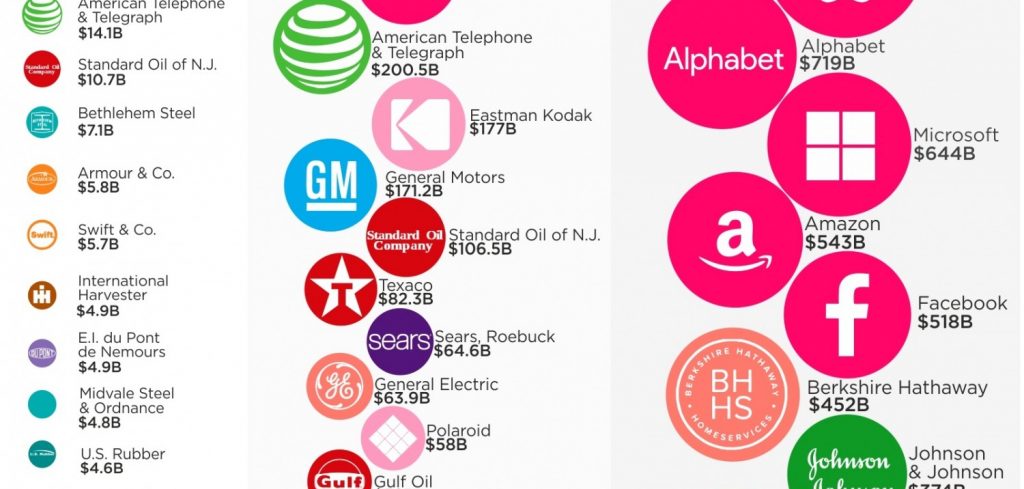If you’re looking to make long-term predictions about the companies and industries that are set to stick around, you might want to look further than today’s giants.
Using data from Forbes, financial website HowMuch.net recently shared a chart comparing the top 10 companies in the United States 100 years ago to those dominating the market today, and the contrast between the two is pretty surprising.
Even the industries that ruled the market a century ago were largely different than they are today. In 1917, oil and steel were the industries to be in, followed by telecom, food, heavy equipment and chemicals. Now, the top five companies are all tech giants—Apple, Amazon and Alphabet (formerly known as Google) among them—followed by conglomerates, healthcare, oil and gas and financial services.
Take a look at HowMuch.net’s illuminating chart for yourself below:
A few things to note about the top 10 companies now and then—other than the vast difference in industries leading the market, of course—is just how much cash these companies are raking in.
A century ago, the richest company in the United States, U.S. Steel, was valued at $46.4 billion (adjusted for inflation).
Today, the biggest name in business, Apple, is valued at $898 billion. That means that, overall, the United States is a much wealthier country than it used to be.
The companies that survived as top contenders over the years, HowMuch.net notes, either merged with competitors or seriously revamped their businesses in order to stay with the times.
And that innovation is something today’s top companies should keep in mind: tech may reign supreme at the moment, but just like the steel and oil industries of days past, they’re bound to be disrupted by companies that we can’t yet predict. (In fact, many are already questioning whether Facebook and other top tech companies are about to get toppled by blockchain, a secure, more egalitarian technology that could be used to power networks, apps, finance and more.)
The lesson here? The world is constantly changing—and in order to stay profitable, businesses need to change with it.







